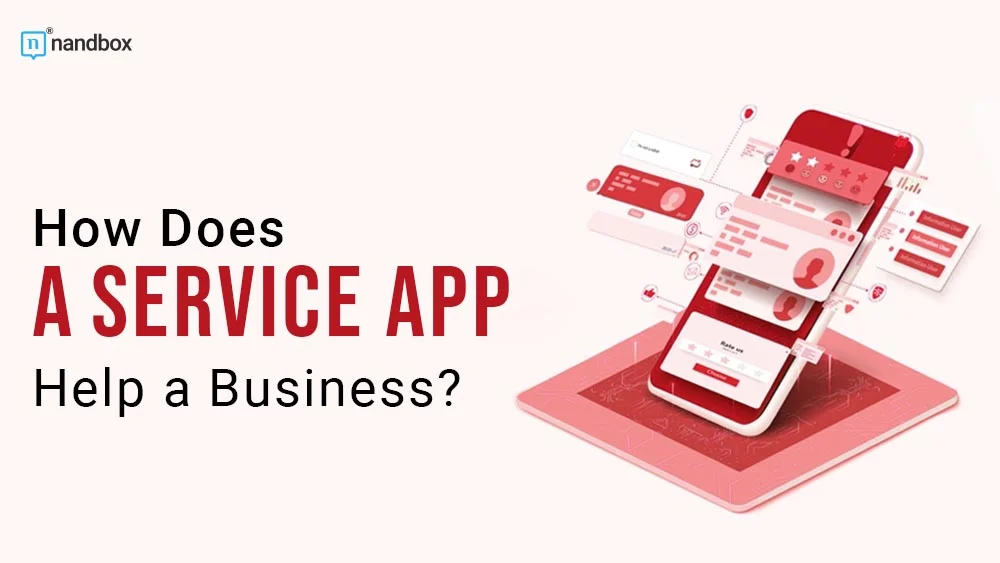Enhancing Business Efficiency with Service Apps
In today’s dynamic digital landscape, organizations seek innovative strategies, like developing service apps, to enhance processes and customer experiences, ensuring competitive edge. Service apps, disrupting operational norms, are becoming indispensable for reaching unparalleled development and success. This article explores the transformative impact of service apps on business operations, leading to an era of remarkable productivity across the global arena.
Enhanced Accessibility
Service apps have revolutionized company-client communication by enhancing accessibility and overcoming the time and location constraints of physical stores. Customers can interact, view inventory, and order anytime, anywhere, increasing convenience, attracting a wider consumer base, and ensuring your business aligns with today’s rapid lifestyle by providing 24/7 availability.
Matt Magnante, Head of Marketing at FitnessVolt
Improved Customer Engagement
Service apps serve a dual purpose: they are not merely virtual storefronts but also potent communication tools for their users. Furthermore, businesses can engage directly with their customers by leveraging features like push notifications, in-app chat, and feedback forms. Because these interactive solutions facilitate real-time contact, businesses can promptly respond to client inquiries, provide support, and gather crucial feedback. Moreover, this enhanced customer interaction fosters a relationship between the business and the customer, subsequently boosting customer loyalty and retention. Ultimately, when a company makes a concerted effort to communicate with them, customers feel a stronger connection, believing they are valued and heard.
Andrew Priobrazhenskyi, CEO and Director at DiscountReactor
Streamlined Operations
Service apps improve business efficiency by automating various functions such as scheduling and payment handling, reducing manual intervention and errors. This accelerates processes, frees staff to focus on strategic tasks, and saves time and money, ensuring a smoother experience for employees and customers alike.
Graham Grieve, Marketing Manager at First Vehicle Leasing
Data-Driven Decision Making
Service apps collect invaluable user data on customer behavior, preferences, and trends, enabling businesses to make data-driven decisions. This information allows companies to employ personalized marketing, adjust product offerings based on purchasing habits, and identify industry trends. Such insights facilitate staying ahead of competition, adapting to market changes, and fostering organizational growth through informed decision-making.
Sam McKay, CEO of Enterprise DNA
Increased Revenue
Enhanced revenue is typically the result of enhanced convenience and accessibility, both of which are supplied by service apps. The upselling and cross-selling of products and services can be accomplished by businesses with the use of service applications. Directly sending discounts or promotions via an app can boost sales by supporting in-app transactions and streamlining user purchases. Coupled with enhanced customer interaction, this approach aids businesses in elevating their sales and revenue.
Craig Campbell, Owner of HARO Link Building
Enhanced Customer Loyalty
Service apps uniquely facilitate a more personalized experience for customers. Initially, they gain a heightened sense of feeling both understood and valued when they access features like user profiles, purchase histories, and product recommendations. Consequently, when customers form a deep emotional connection to a product or service, they are more likely to remain loyal to a brand. Not only do loyal customers return for additional purchases, but, additionally, they transform into ambassadors for your company. This advocacy not only promotes positive word-of-mouth but also contributes to establishing a client base that is simultaneously stable and expanding.
Rhodes Perry, Owner of IceBike
Cost Efficiency
Implementing a service app entails an initial investment but can significantly curtail costs over time by automating operations, reducing the need for manual labor and physical infrastructure. For example, utilizing chatbots for customer service not only saves on labor costs but also provides 24/7 support, impacting the company’s bottom line positively in the long run.
Tiffy Cu, Travel Blogger at Asiatravelbug
Competitive Advantage
Leveraging service apps in a fiercely competitive market is vital for business success, providing a crucial edge by attracting customers who prioritize ease and effective app-based services. A strategically developed service app not only positions a company as a technologically advanced leader in its sector but also distinguishes it from rivals, appealing to a tech-savvy consumer base, and potentially driving long-term industry success and expansion.
Brandon Armstrong, CEO of Quinable Inc.
Conclusion
Apps that provide a service are no longer merely a trendy addition to a company; rather, they are an absolute must. They come with a plethora of advantages, including enhanced customer interaction, streamlined processes, data-driven decision-making, and increased revenue. In this day and age, businesses that are willing to adopt service applications have a better chance of achieving success and expanding their operations. It is time to start thinking about creating a service app for your company if you wish for it to continue to be competitive and relevant in today’s industry.







